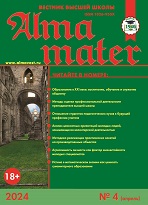https://doi.org/10.20339/AM.09-17.101
O.Yu. Kornienko is Cand.Sci. (Phililigy), doc. at Faculty of Global Processes of Lomonosov Moscow State University e-mail: lin_expr@mail.ru
Examined is interconnection between traditional and modern types of cultural identity in Western societies in the context of globalization. On the basis of the analysis of approaches to analyzed are changes as to cultural identity, that are being explicit in the language. The base of the analysis is modern vocabulary, reflecting peculiarities in ethnic and national identities in American society. Besides, in the article special attention is paid to new form of identity, namely, to global identity and basic demonstrations of such, i.e. cosmopolitism, identity of interest, correspondence to the society of consumption and functioning in Internet communication network.
Key words: traditional identity, global identity, globalization of education, consumption society, concretization/ generalization of meaning, abbreviation.
References
- Burchenkova, L.Sh. Sub-cultures as new form of identification from the point of view of subject oriented approach. Young scientist. 2016, no. 7, pp. 316-320.
- Giddens, A. Modernity and self-identity: Self and society in the late modern age Stanford, CA: Stanford University Press, 1991, p. 34.
- Hall, S., Du Guy, E. Questions of cultural identity, L: SAGE, 1996; Hall, S.; The question of cultural identity. Modernity and it’s future. Cambridge UK: Open University, 1992, pp. 272–326.
- Mathews, G. Global culture/ individual identity. Searching for home in the cultural supermarket. London: Routledge, 2001.
Internet sources
1. URL: http://dic.academic.ru/dic.nsf/ruwiki/23531
2. URL: http://GaryVaynerchuk.com
3. URL: http://SEOmoz.org
4. URL: http://SmartPassiveIncome.com











.png)






